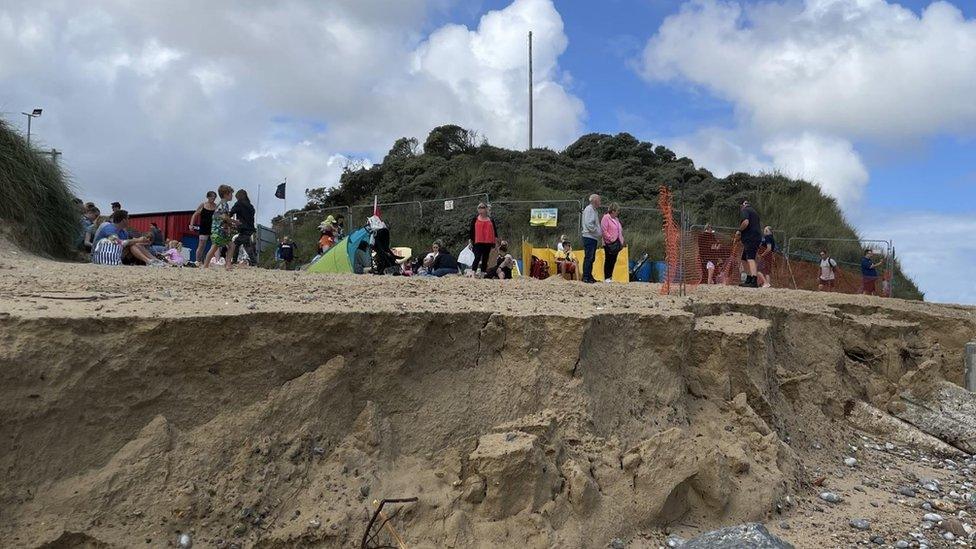Beach erosion leaves lifeboat unable to launch
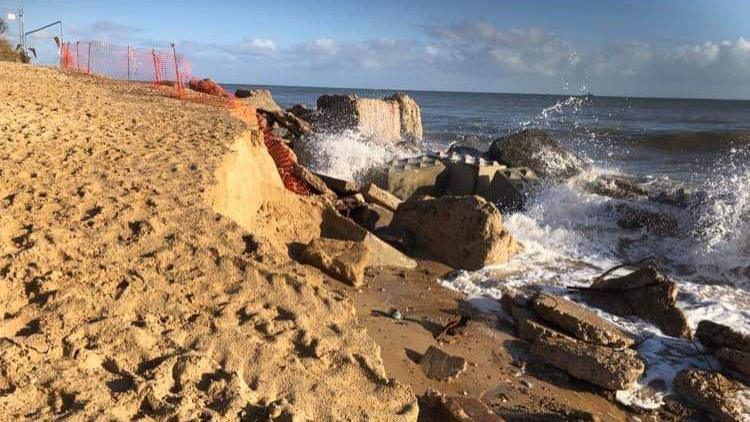
Up to two metres (6ft) of beach was lost to the sea at Hemsby overnight
At a glance
The coxswain of Hemsby Lifeboat said it was unable to launch due to further coastal erosion overnight
Up to two metres (6ft) of beach was lost to the sea, the coxswain said
Hemsby is on a vulnerable stretch of coastline which regularly suffers from erosion
Plans for permanent sea defences have been granted but the funding has not yet been secured
- Published
An independent lifeboat says it is unable to launch due to the impact of further coastal erosion.
Up to two metres (6ft) of beach was lost to the sea during high tide at Hemsby in Norfolk on Friday night.
The coxswain of Hemsby Lifeboat, Daniel Hurd, said it caused a "6ft drop" (1.8m) in the sand which meant the lifeboat would not be able to reach the sea in the event of an emergency.
Hemsby is on a vulnerable stretch of coastline, where five homes had to be demolished earlier this year after being battered by high tides and strong winds.
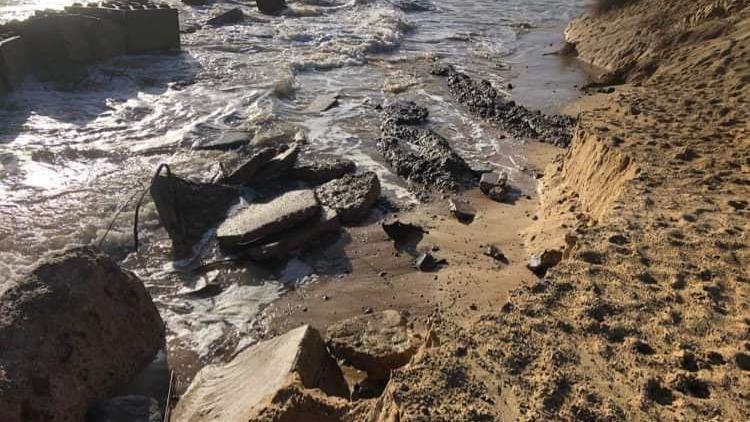
Erosion overnight has left a 6ft (1.8m) drop in the sand
Mr Hurd said a garden shed that belonged to a chalet nearby was "teetering over the edge" of a sand dune that had been partially washed away by the sea.
He worries that the whole property may need to be demolished if another high tide or north easterly wind continues to erode the coastline.
He described the ongoing situation as "heartbreaking".

Coxswain Daniel Hurd describes the impact of the latest erosion as "heartbreaking"
About 2,000 tonnes of granite was placed along a 262ft (80m) section of cliff at The Marrams, south of Hemsby gap, at the end of March in a bid to protect the area.
Plans for a permanent defence stretching 0.8 miles (1.3km) have been granted a licence by the Marine Management Organisation.
However, Great Yarmouth Borough Council would need to find £15m to complete the work.
The council has been approached for comment following Friday's erosion.
Follow East of England news on Facebook, external, Instagram, external and X, external. Got a story? Email eastofenglandnews@bbc.co.uk, external or WhatsApp us on 0800 169 1830
Related topics
- Published20 May 2023
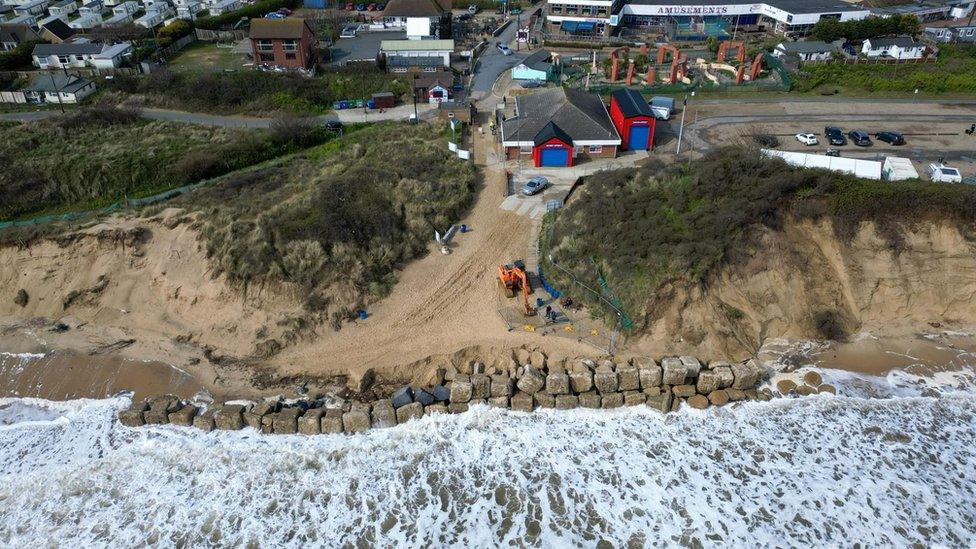
- Published16 March 2023
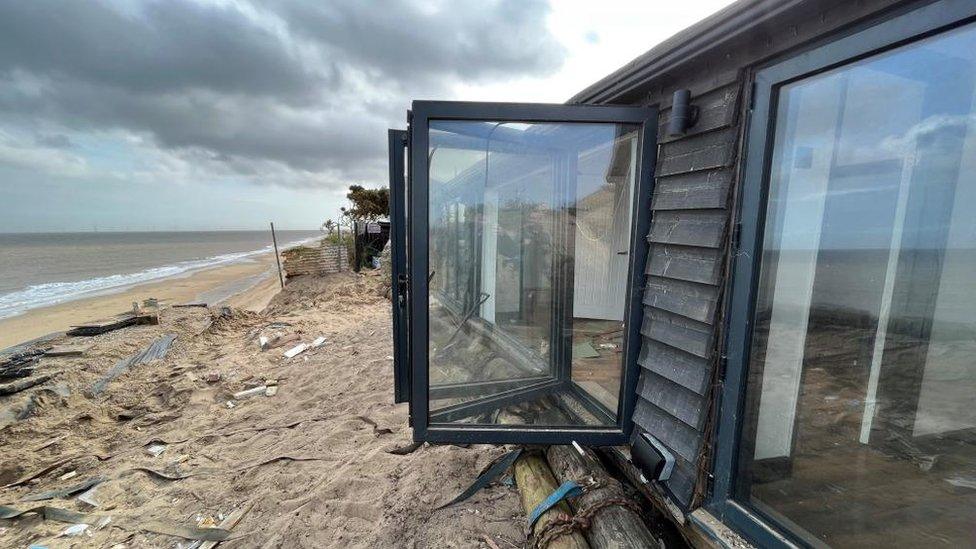
- Published7 August 2023
